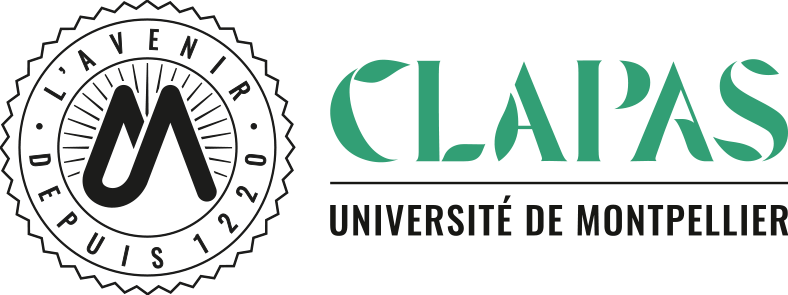Key Collaborative Initiative Local research Actions on Plant health and AgroSystems: CLAPAS
Call for exploratory research proposals AI-3 2024

The Key Initiatives of the I-SITE Excellence Program aim to meet the following objectives:
- bring together, in an organized partnership, multidisciplinary skills aimed at producing innovative projects of general interest for the territory or the I-SITE consortium,
- structure a scientific community,
- be a defining, innovative, or distinguishing feature of the site,
- generate transformative and knock-on effects in terms of research or training.
The CLAPAS key initiative will receive €300,000 in funding over the period 2024-2026.
The CLAPAS key initiative is launching its third call for projects related to incentive actions (AI) to support exploratory research and invest in plant health research fronts. This program is open to all research structures under the supervision of institutions belonging to the strategic agreement linked to the University of Montpellier clusters (CIRAD – CNRS – INRAE – Institut Agro Montpellier – IRD) and whose research activities are broadly focused on plant and agrosystem health.
This AI-3 2024 aims to support exploratory research activities or consolidate activities between at least two different research units affiliated with the University of Montpellier's research centers.
CONTEXT & OBJECTIVES OF THE CALL
The CLAPAS key initiative aims to promote interdisciplinary research on the phytobiome (or exposome) of cultivated plants, involving plants, their environment, and associated micro- and macro-organism communities , as well as the direct or indirect managers of these cultivated areas (farmers, public and private agricultural advisory bodies, etc.). This research is essential for understanding the complex networks of interactions within the phytobiome and their effects on the health of plants, soils, and agrosystems. Through agrosystems, this initiative also seeks to stimulate research on practices, management and regulatory mechanisms, and the structural factors that shape interactions within the phytopathosystem.
Using this knowledge to encourage the adoption of more sustainable agricultural practices is a key aspect of plant and agrosystem health management, and also contributes to environmental preservation and human and animal health. These approaches are even more crucial for countries in the Global South, where the impact of climate change is greater. In addition, many tools, methods, and concepts are common to the study of human, animal, and plant health (parasite transmission mechanisms, epidemiological models, perception analyses, risk management systems and policies, etc.) and can be shared for an integrated approach to health ( One Health concept).
The objectives of this research are to anticipate risks (" predict/monitor/prepare" ), evaluate existing socio-technical measures, and consider new management solutions and strategies ("prevent/cure "), and to assess the health and socio-economic impacts of these solutions (" repair/strengthen resilience ") on agrosystems.
themes of the call
Projects may relate to, but are not limited to, the following topics:
- the mechanisms and ecology of biotic interactions in agrosystems and associated natural ecosystems;
- the role of microbiota in the host's adaptation to its environment;
- interactions between socio-technical mechanisms and biotic mechanisms at work in crop health management; socio-technological barriers to innovation;
- epidemiological surveillance, invasion routes, and adaptive dynamics of micro- and macro-organism populations.
Approaches in the humanities and social sciences on the role/impact of agricultural practices and their socio-economic determinants, including health risk management and agrosystem health protection measures, are welcome. Funding will be reserved for at least two projects involving HSS approaches.
In line with the ambitions of the CLAPAS key initiative, this call for proposals strongly encourages seed projects, risk-taking, and originality. Interdisciplinary research projects and new collaborations are also welcome. Furthermore, projects focused on the Global South or involving partners in the Global South are encouraged.
AMOUNTS AVAILABLE
Maximum amount of aid per project: €10,000
Potential total amount for this AI-3 2024: €100k
The allocated funds will be available until the end of 2025. The following costs are eligible: operating costs, internship stipends, equipment (any purchase > $500), outsourcing/subcontracting, mission expenses, and travel expenses.
CALENDAR
- Call for proposals launch date: December 9, 2024
- Application deadline: January 20, 2025
- Sent to internal evaluators: January 21, 2025
- Review of applications by the Selection Committee: January 30, 2025
- Announcement of results: January 31, 2025
- Funds made available: February 25
SUBMISSION TERMS AND CONDITIONS
Files must be submitted in Word format according to the template available for download.
Projects must be designed to last one year and written in French. Proposals must be submitted by email. A confirmation of receipt will be sent within 48 hours.
Projects must have been approved by the director of each research organization.
Projects should, as far as possible, be part of the open science approach, making the data produced easy to find, accessible, interoperable, and reusable (FAIR).
The leaders of the selected projects will undertake to provide a graphic illustration summarizing their project for display on the website, and to present the results of the actions carried out during inter-unit seminars at the beginning and end of their project.
TARGET AUDIENCE
Researchers, teacher-researchers, engineers. The project will necessarily involve two partners from different units with different skills.
SCIENTIFIC COMMITTEE
Projects will be evaluated by a joint, multidisciplinary scientific council that includes external experts from countries in the Global South. Each proposal will be evaluated by two members of the scientific evaluation committee.
Selection criteria
The evaluation criteria are the quality and originality of the scientific project and the complementarity of the collaboration.